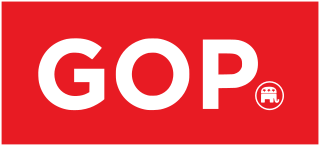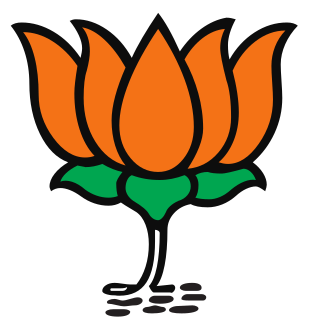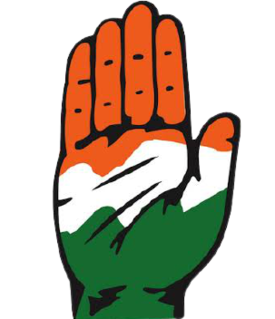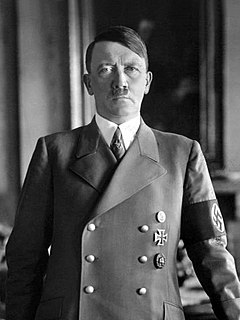Related Research Articles
Conservatism is an aesthetic, cultural, social, and political philosophy, which seeks to promote and to preserve traditional social institutions. The central tenets of conservatism may vary in relation to the traditional values or practices of the culture and civilization in which it appears. In Western culture, conservatives seek to preserve a range of institutions such as organized religion, parliamentary government, and property rights. Adherents of conservatism often oppose modernism and seek a return to traditional values.

The Communist Party of China (CPC), commonly known as the Chinese Communist Party (CCP), is the founding and sole governing political party of the People's Republic of China (PRC). The CCP leads eight other legally permitted subordinate minor parties together as the United Front. The CCP was founded in 1921, mainly by Chen Duxiu and Li Dazhao, with the help of the Far Eastern Bureau of the Communist Party of the Soviet Union and Far Eastern Secretariat of the Communist International. The party grew quickly, and by 1949 it had driven the Kuomintang (KMT)'s Nationalist Government from mainland China to Taiwan after the Chinese Civil War, leading to the establishment of the People's Republic of China on 1 October 1949. It controls the country's armed forces, the People's Liberation Army (PLA). It is also one of the two major historical contemporary parties in Chinese history, the other being the Kuomintang.

The Nazi Party, officially the National Socialist German Workers' Party, was a far-right political party in Germany active between 1920 and 1945, that created and supported the ideology of Nazism. Its precursor, the German Workers' Party, existed from 1919 to 1920. The Nazi Party emerged from the German nationalist, racist and populist Freikorps paramilitary culture, which fought against the communist uprisings in post-World War I Germany. The party was created to draw workers away from communism and into völkisch nationalism. Initially, Nazi political strategy focused on anti-big business, anti-bourgeois, and anti-capitalist rhetoric, although this was later downplayed to gain the support of business leaders, and in the 1930s the party's main focus shifted to antisemitic and anti-Marxist themes.

A political party is an organization that coordinates candidates to compete in a country's elections. It is common for the members of a political party to have similar ideas about politics, and parties may promote specific ideological or policy goals.

The Prime Minister of Israel is the head of government and chief executive of the State of Israel.

The Libertarian Party (LP) is a political party in the United States that promotes civil liberties, non-interventionism, laissez-faire capitalism, and limiting the size and scope of government. The party was conceived in August 1971 at meetings in the home of David F. Nolan in Westminster, Colorado, and was officially formed on December 11, 1971 in Colorado Springs, Colorado. The founding of the party was prompted in part due to concerns about the Nixon administration, the Vietnam War, conscription, and the introduction of fiat money.

The Republican Party, also referred to as the GOP, is one of the two major contemporary political parties in the United States, along with its main historic rival, the Democratic Party.
The Conservative Party, officially the Conservative and Unionist Party, and also known colloquially as the Tories, Tory Party, or simply the Conservatives, is a political party in the United Kingdom. Ideologically, the Conservatives sit on the centre-right of the political spectrum. The Conservatives have been in government since 2010; as of 2019, they hold an overall majority in the House of Commons, with 365 Members of Parliament. The party also has 264 unelected members of the House of Lords, 8 members of the London Assembly, 31 members of the Scottish Parliament, 16 members of the Senedd and 7,430 local authority councillors.

The Knesset is the supreme unicameral national legislature of Israel. As the supreme legislature of Israel, the Knesset is sovereign and thus has complete control of the entirety of the Israeli government. The Knesset passes all laws, elects the president and prime minister, approves the cabinet, and supervises the work of the government, among other things. In addition, the Knesset elects the state comptroller. It also has the power to waive the immunity of its members, remove the president and the state comptroller from office, dissolve the government in a constructive vote of no confidence, and to dissolve itself and call new elections. The prime minister may also dissolve the Knesset. However, until an election is completed, the Knesset maintains authority in its current composition. The Knesset meets in Givat Ram, Western Jerusalem.

The Bharatiya Janata Party is one of two major political parties in India, along with the Indian National Congress. It is the current ruling political party of the Republic of India, having been so since 2014. The BJP is a right-wing party, and its policy has historically reflected Hindu nationalist positions. It has close ideological and organisational links to the much older Rashtriya Swayamsevak Sangh (RSS). As of 2019, it is the country's largest political party in terms of representation in the national parliament and state assemblies and is by far the world's largest party in terms of primary membership, with the second largest party, the Chinese Communist Party, having about half the registered members of the BJP.

The Indian National Congress, is a political party in India with widespread roots. Founded in 1885, it was the first modern nationalist movement to emerge in the British Empire in Asia and Africa. From the late 19th century, and especially after 1920, under the leadership of Mahatma Gandhi, Congress became the principal leader of the Indian independence movement. Congress led India to independence from the United Kingdom, and powerfully influenced other anti-colonial nationalist movements in the British Empire, making it one of the world's oldest active political parties. The party has been overshadowed by the governments based on a haphazard mixture of Gandhism, socialism and capitalism. It stands for mixed economy and envisages a dominant role for the public sector. Its policies nationalized banks and insurance companies to curb monopoly and concentration of wealth.
Likud, officially known as Likud – National Liberal Movement, is the major center-right to right-wing political party in Israel. A secular party, it was founded in 1973 by Menachem Begin and Ariel Sharon in an alliance with several right-wing parties. Likud's landslide victory in the 1977 elections was a major turning point in the country's political history, marking the first time the left had lost power. In addition, it was the first time in Israel that a right-wing party won the plurality of the votes. However, after ruling the country for most of the 1980s, the party lost the Knesset election in 1992. Nevertheless, Likud's candidate Benjamin Netanyahu did win the vote for Prime Minister in 1996 and was given the task of forming a government after the 1996 elections. Netanyahu's government fell apart after a vote of no confidence, which led to elections being called in 1999 and Likud losing power to the One Israel coalition led by Ehud Barak.
An independent or nonpartisan politician is a politician not affiliated with any political party. There are numerous reasons why someone may stand for office as an independent.

Adolf Hitler was an Austrian-born German politician who was the dictator of Germany from 1933 to 1945. He rose to power as the leader of the Nazi Party, becoming Chancellor in 1933 and then assuming the title of Führer und Reichskanzler in 1934. During his dictatorship from 1933 to 1945, he initiated World War II in Europe by invading Poland on 1 September 1939. He was closely involved in military operations throughout the war and was central to the perpetration of the Holocaust, the genocide of about 6 million Jews and millions of other victims.

The Democratic Party is one of the two major contemporary political parties in the United States, along with its main historic rival, the Republican Party. It was founded around 1828 by supporters of Andrew Jackson, making it the world's oldest active political party.
The Labour Party is a centre-left political party in the United Kingdom that has been described as an alliance of social democrats, democratic socialists and trade unionists. In all general elections since 1922, Labour has been either the governing party or the Official Opposition. There have been six Labour prime ministers and thirteen Labour ministries.

The United States House of Representatives is the lower house of the United States Congress, with the Senate being the upper house. Together they compose the national bicameral legislature of the United States.

The Black Panther Party (BPP), originally the Black Panther Party for Self-Defense, was a Black Power political organization founded by college students Bobby Seale and Huey P. Newton in October 1966 in Oakland, California. The party was active in the United States between 1966 and 1982, with chapters in numerous major cities, and international chapters in Britain and Algeria. Upon its inception the Black Panther Party's core practice was its open carry armed citizens' patrols ("copwatching") to monitor the behavior of officers of the Oakland Police Department and challenge police brutality in the city.
References
- ↑ 1984 Parliamentary Handbook